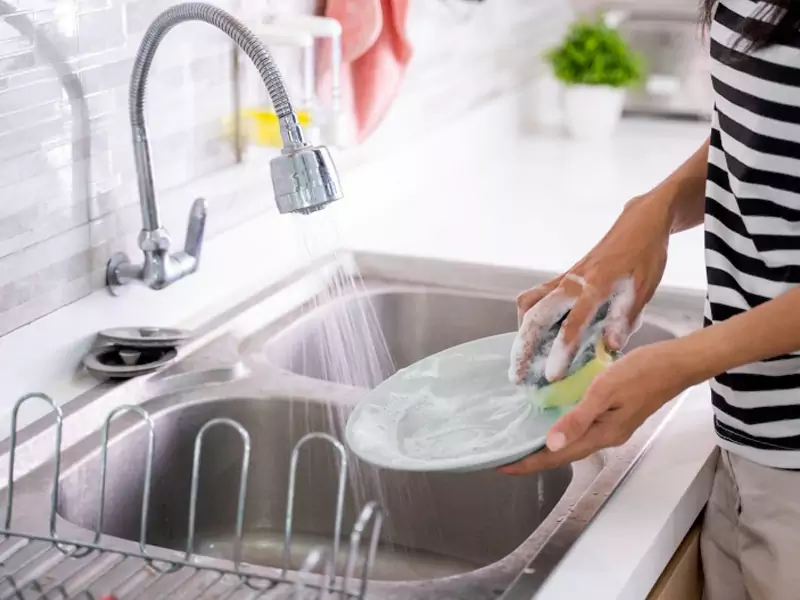Have you ended up in a situation without water? Wonder hot to wash dishes without water? Here’s a guide on how it can be done safely and easily.
Washing dishes without water might sound like an impossible task, but it’s not only feasible but also an excellent way to reduce your water consumption and environmental footprint.
Why You Might Need To Wash Dishes Without Water OR With Very Little Water
Whether you’re camping, in an RV, facing a water shortage or simply looking for a more sustainable approach to everyday tasks, you might encounter this situation.
Washing dishes without water is an eco-friendly approach that can be both practical and environmentally responsible.
You can conserve water, reduce your ecological footprint, and make a positive contribution to a more sustainable future.
Next time you find yourself without running water or simply want to be more mindful of your water usage, give this method a try and see how effective and eco-conscious it can be.
How To Wash Your Dishes Without Water (Step-by-Step Guide)
This guide walks you through the steps, tips, and advice on how to wash dishes without water.
Scrape and Remove Debris
Before you start, scrape off any leftover food scraps and debris from your dishes. Use a spatula or a brush to do this, making sure to dispose of the waste properly. This step helps minimize the amount of cleaning you’ll need to do without water.
Gather Supplies
- A basin or tub
- Biodegradable dish soap
- Dishcloths or scrubbing brushes
- Towels for drying
- Disposable wipes (optional)
Prepare the Basin
Fill your basin or tub with a small amount of warm water, just enough to moisten your cleaning tools. It’s crucial to conserve water, so be mindful not to overfill.
Apply Dish Soap
Add a small amount of biodegradable dish soap to your cleaning tools. Biodegradable soap is essential to minimize your environmental impact, especially if you’re disposing of the wash water outdoors.
Scrub and Clean
Start washing dishes one by one, using your soapy cloth or brush. For tough, greasy stains, you may need to scrub a bit harder, but remember to conserve water by reusing the same basin water for multiple dishes.
Pay extra attention to utensils and cookware with caked-on food.
Rinse Sparingly (If Necessary)
In some cases, you might need to rinse dishes to remove soap residue. If you have a small reserve of water available, use it sparingly for rinsing. Alternatively, you can use disposable wipes to wipe off soap residue.
Dry Thoroughly
After washing and, if necessary, rinsing the dishes, dry them thoroughly with clean, dry towels. Proper drying prevents the growth of bacteria and mold.
Dispose of Waste
Dispose of any food scraps and waste in an environmentally responsible manner. Composting is an excellent option for food scraps, while non-recyclable waste should go into the trash.
Tips and Advice For Washing Dishes Without Water
Conserve Water: The key to washing dishes without water is to use as little water as possible. Be mindful of how much you use during each step of the process.
Use Biodegradable Soap: Choose biodegradable dish soap to minimize the environmental impact when disposing of wash water.
Reusable Cleaning Tools: Opt for reusable cleaning tools like cloth dishcloths and brushes to reduce waste.
Prioritize: Start with the dirtiest dishes first, so you can reuse the same water for multiple items.
Prevent Food Buildup: Scrape dishes thoroughly before washing to minimize the amount of cleaning required.
Consider Disposable Wipes: In situations where water conservation is crucial, disposable wipes can help remove soap residue without additional rinsing.
Save Graywater: If you’re washing dishes outdoors, consider collecting and reusing graywater for non-potable purposes, such as watering plants.

